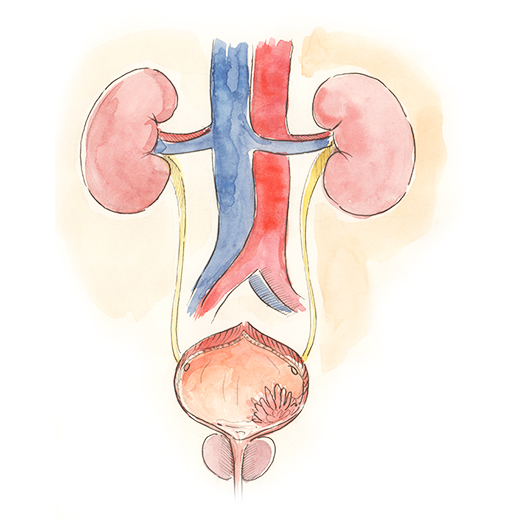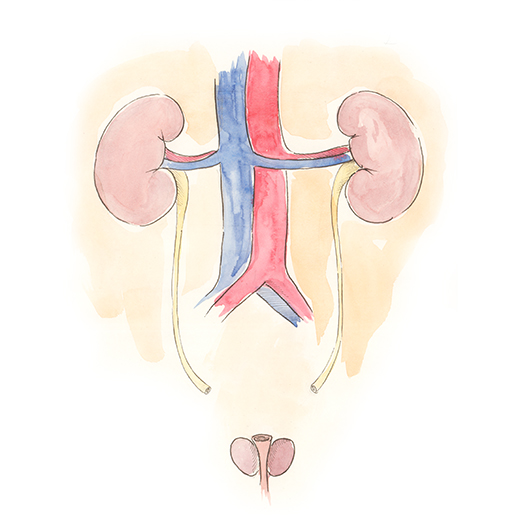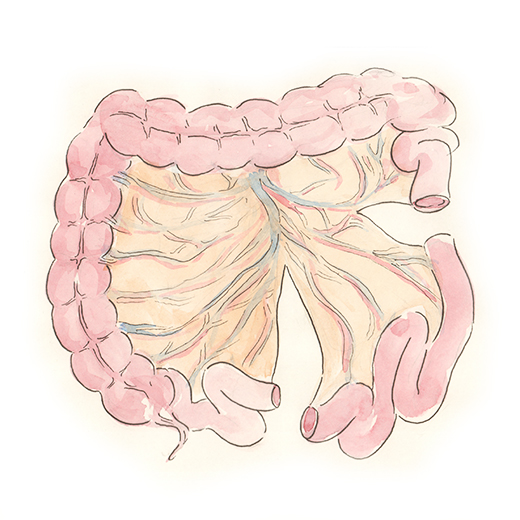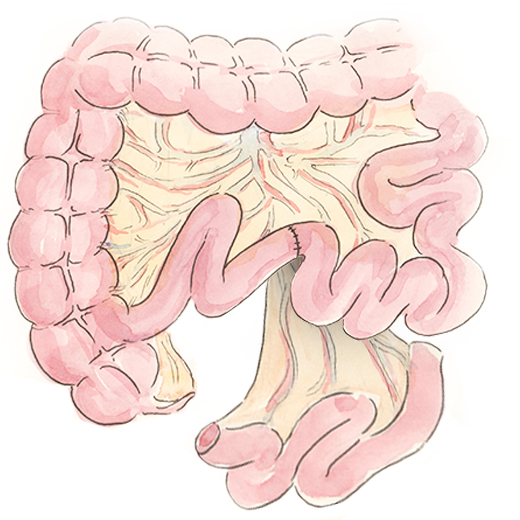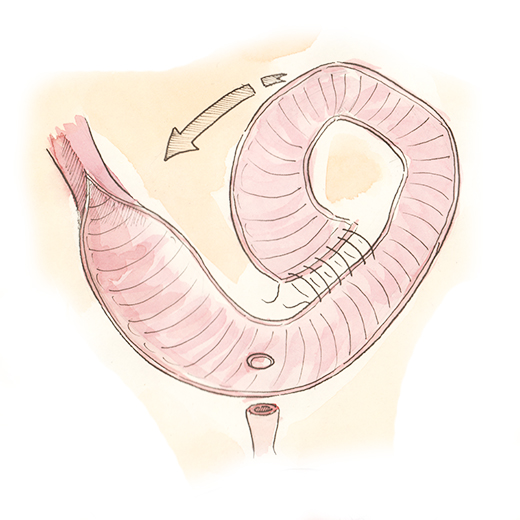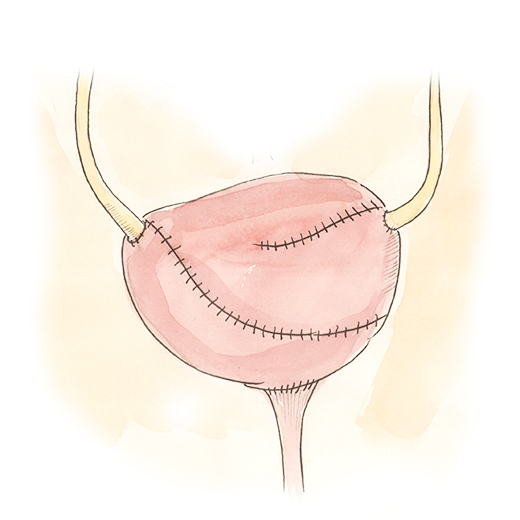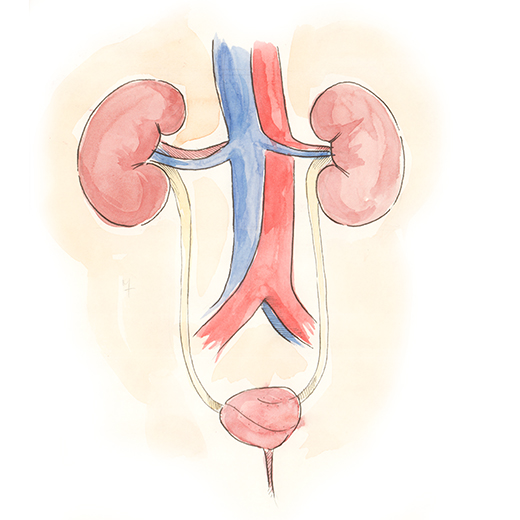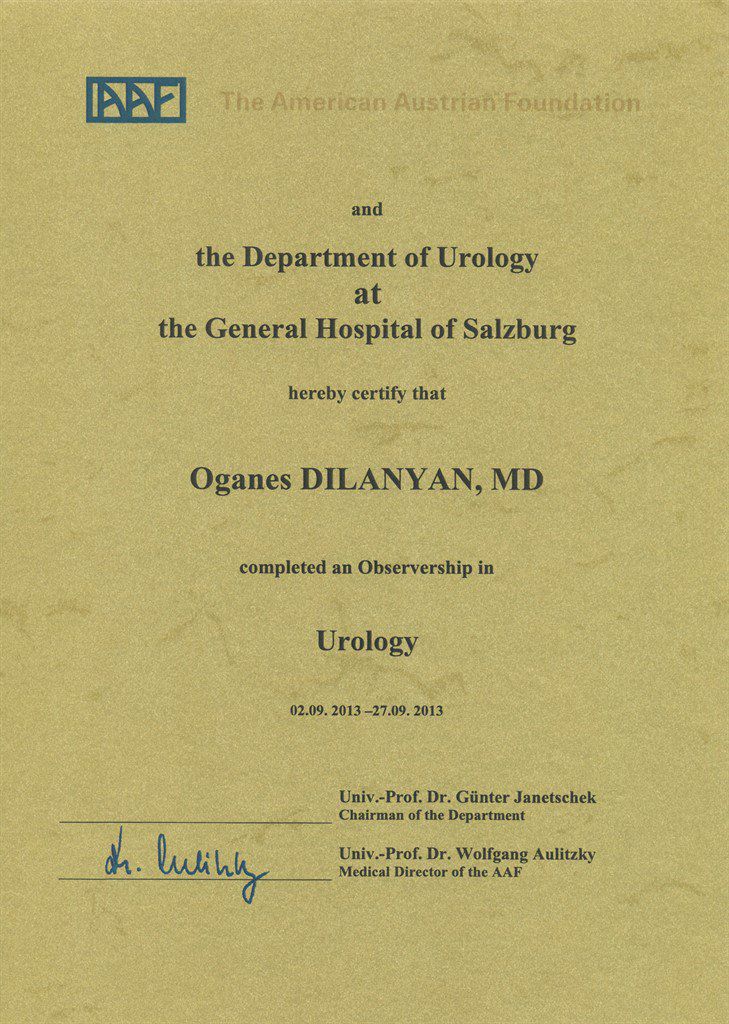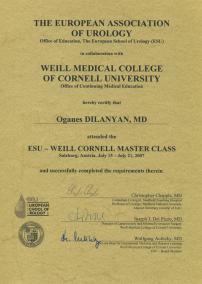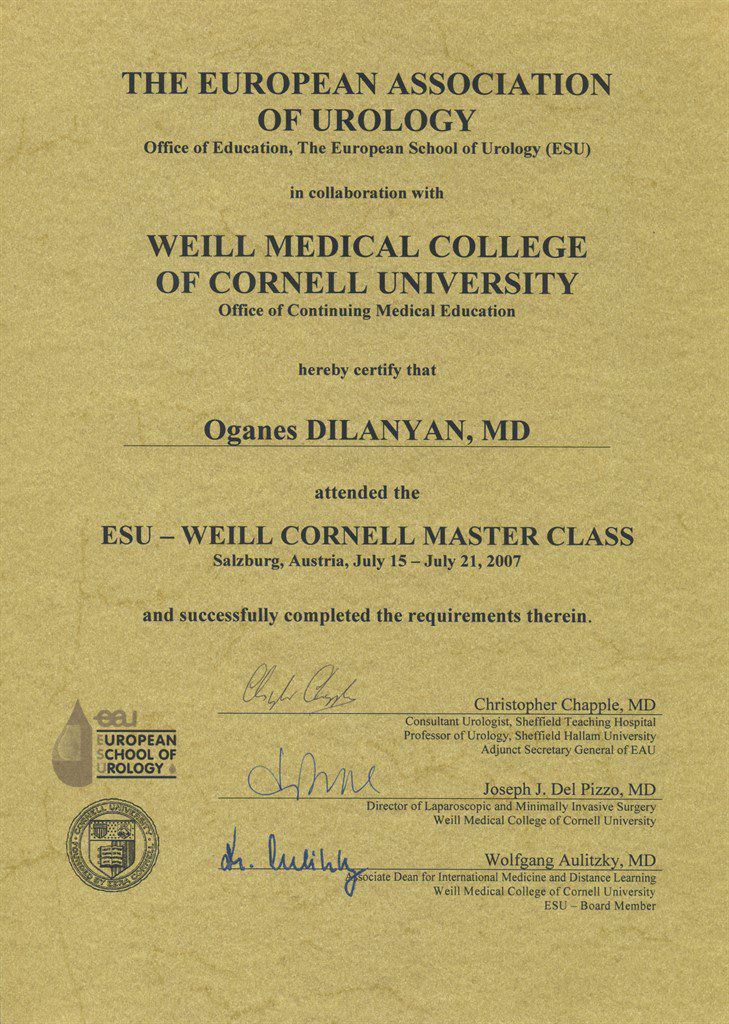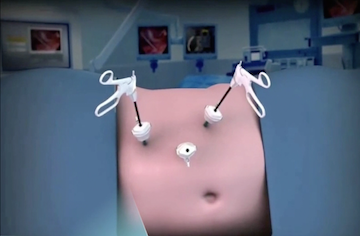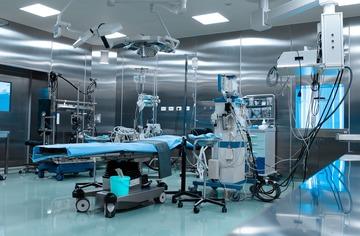Bladder removal
Bladder removal surgery, also known as cystectomy is a desperate measure and the only radical way of bladder cancer treatment in the second, third or fourth stage.
How is bladder removal surgery performed? What is the prognosis? Should the lymph glands be removed? What are the complications of bladder removal in men and women? Will there be pain after the operation? I will try to answer these questions first. And one important thing: only full cooperation of the doctor and the patient can lead us to success.
For over ten years I have been treating cancers and especially bladder cancers. And for many years a very simple premise has been seen as a given: “Bladder cancer that has gone beyond the first stage always calls for bladder removal”. The same statement is often repeated by many professional associations, in many manuals, and in countless oncology publications. And still, in my professional life I often come across people whose life could have been saved but they either did not agree to bladder removal or their tumour was removed while preserving the bladder. Such attempts usually lead to metastasis and make radical treatment impossible.

Cancer diagnosis itself is a very difficult and stressful thing. And no one wants to lose an organ. But when it’s removing the bladder or losing one’s life one has to choose life. Besides, in the majority of cases we are able to restore the bladder after removing it. Living with tubes, containers and catheters following the operation is in the past. Modern laparoscopic surgery makes it possible to cure the patient from cancer and ensure their quick recovery.
Bladder removal surgery
It is important to know and understand that multiple studies in the US, Europe and Russia have confirmed that radical high-quality treatment of bladder cancer that has advanced further than the first stage is only possible with bladder removal. Removing only the tumour has been tried many times in order to save the bladder but it never ended well. So, the postulate is: If the tumour has spread beyond the mucus layer only cystectomy can save the patient’s life.
Also, if the patient has first stage cancer but it still relapsed following treatment, bladder removal is indicated.
Bladder removal surgery is required in all cases of invasive cancer.
Laparoscopic surgery
Despite of this operation being the most complicated among other oncological and urological operations we have been performing it laparoscopically for several years ensuring minimal trauma in the absence of large incisions. The advantages of laparoscopic surgery are clear. The patient’s abdomen is not wide open to bacteria and there is no pain and no huge scar after the operation. There is also no risk of peritonitis or post-operative hernias. The patient is usually up and about the day after the surgery.

- Is it not at all possible to preserve the bladder? I have read that it can be treated with radiation…
My patient is young, he is only 44. He has not told anyone at home about his diagnosis, he is the main bread winner for a family of 5. He got married quite late, has a very stressful job, was smoking a lot… “This cannot be happening to me!” were his words when he first came to me with blood in the urine. Following a TUR biopsy and double control histology we detected an invasive tumour of the bladder.
- No, Anton, saving your bladder would be a death sentence.
- I would rather die than live with tubes and urine containers.
- Be quiet. Be quiet now and never say this ugly word to me again. I start losing my patience because I deeply believe that one simply cannot chose death, it goes against the human nature, it goes against God himself. -What tubes? What containers? We are not living in the 18th century. I will make you a new bladder from your intestine and you will be sorted. Who is going to feed your children?
- If not me then no one else.
-Exactly.
- I know nothing about medicine. But how can you make a bladder from my intestine? Will my urine to into my intestines?
- Of course not. We will take a part of your intestine and make a new bladder from it. Look, this is how it will happen. I draw a diagram of bladder replacement using part of an intestine and demonstrate that intestinal integrity will be restored.
Bladder reconstruction after removal
Modern techniques allow us to build a new bladder using ileocolonic part of the intestine. Otherwise the patient will not have a vessel to hold urine and the ureters will have to be diverted to the outside of the abdomen and this can cause chronic renal insufficiency which can be life threatening, due to constant kidney infections.
Most often we use ileocolonic segment and this stage of the surgery is shown below.
Using modern technology, we create a new bladder and spare the patient life-long use of tubes and containers.
Bladder removal in men
Bladder removal in men has several specific features and the main question remains: can the prostate be saved? Saving the prostate will ensure good retention of urine and allows to preserve erectile function. If in the past the bladder would have been removed together with the prostate and seminal glands, but now if the tumour has not penetrated into the prostate we do everything to save both the prostate and the seminal glands.

- And what will happen to my…well, male function? Because I still...you know…basically sex means a lot to me. – When I did the biopsy I also took some tissue samples from the prostatic urethra. Your tumour has not penetrated into the prostate. This means I can save the prostate and the neurovascular bundles therefore preserving erectile function and urine retention.
Bladder removal in women
While in men we worry about saving the prostate with women it is often necessary to remove the uterus or even the vagina. This is why bladder removal has to be performed by a urology and oncology surgeon experienced in reconstructive surgery. In the past few years we have been getting good functional results preserving the uterus and vagina but only if the cancer has not affected those organs. But even when the cancer has penetrated into these organs we can still reconstruct the vagina which makes it possible for patients to return to normal sex life after the operation.
Complications of bladder removal
Complications after bladder removal depend on the experience of the surgeon, the stage of the disease and on the type of surgery. Recovery during post-surgery period is quicker after laparoscopic surgery. Our patients spend minimal time in intensive care unit following the operation due to laparoscopic surgery causing minimal or no blood loss and minimising the risk of abdominal cavity infections.
Proper patient monitoring following bladder removal surgery is very important. We check kidney function, check intestinal function daily, constantly monitor cardiovascular system and respiratory function.
During later post-operative period the patient has to get used to their new bladder. For the first six months they will have to urinate pressing their hand on the abdomen. We prefer to see our patients for regular check-ups every month or so as there is high risk of stone formation in the new bladder during the first year following surgery and if left untreated it can lead to another operation.
Preparation for surgery
Any major surgical procedure requires several pre-surgery tests and investigations. It is not just a silly request of the surgeon or anaesthetist, but it is needed to ensure patients’ safety. We have to make sure that we are not going to face bleeding in the stomach or the rectum after the operation, that there are no underlying conditions which can have very negative effects. One of the most important investigations is leg vein ultrasound. You might ask why we need all this. But the thing is that in any major surgery there exists one life threatening complication. This complication is the detachment of a blood clot that has formed in the deep veins of the legs and blocking the lung artery. This is why to avoid this we need to check the leg veins to make sure that there are no blood clots.

After bladder removal operation
…6 months have passed after the operation.
- Can I come in, Dr Dilanyan? – A smiling man pokes his head through the door.
- Yes, please come in Anton. I can hardly recognise my patient, - you are looking quite a lot bigger than last time!
- Well, I have given up smoking. You said yourself that if I smoke you will catch me and cut off my prostate. He laughs.
- Great stuff, Aton. Have you had your check-up tests?
- Yes doctor, everything is clear. No relapses. Thank you
- Don’t thank just me. Thank the whole team, the anaesthetist, the assistants, the surgical nurse, the ward nurses and the doctors on call. One soldier doesn’t make a battle, Anton.
Professional Approach: Up to date cancer treatment in accordance with recommendations of the leading European associations.
Our team: Specialised science-based oncology and urology team.
Board of doctors: Every patient is assessed together with the oncologist, radiologist and chemotherapy specialist to choose the correct course of treatment.
Equipment: Karl Storz, Covidien and Philips Medical equipment for most precise diagnostics.
Comfort: no queueing or waiting for a consultation and premium inpatient facility with professional care.
Safety: we only use methods recommended by professional associations such as EAU and AAU.
Result: Precise diagnosis and effective treatment of cancerous conditions.
We are also GCP certified, which confirms we provide the highest standards of diagnosis and treatment.
Cost of bladder removal
The price of bladder removal surgery depends on several factors: the amount and the quality of materials used, the way of bladder reconstruction, length of hospital stay and medications used for treatment. We never use unsafe materials and medication of inferior quality because we think that trying to save money on these things can lead to devastating results.
If you require treatment for bladder cancer, please contact us. We will organise your hospital admission on the day of your arrival, will carry out all the necessary tests and consult the board of doctors before carrying out surgery. You will be able to have your follow up appointments remotely after returning home.


